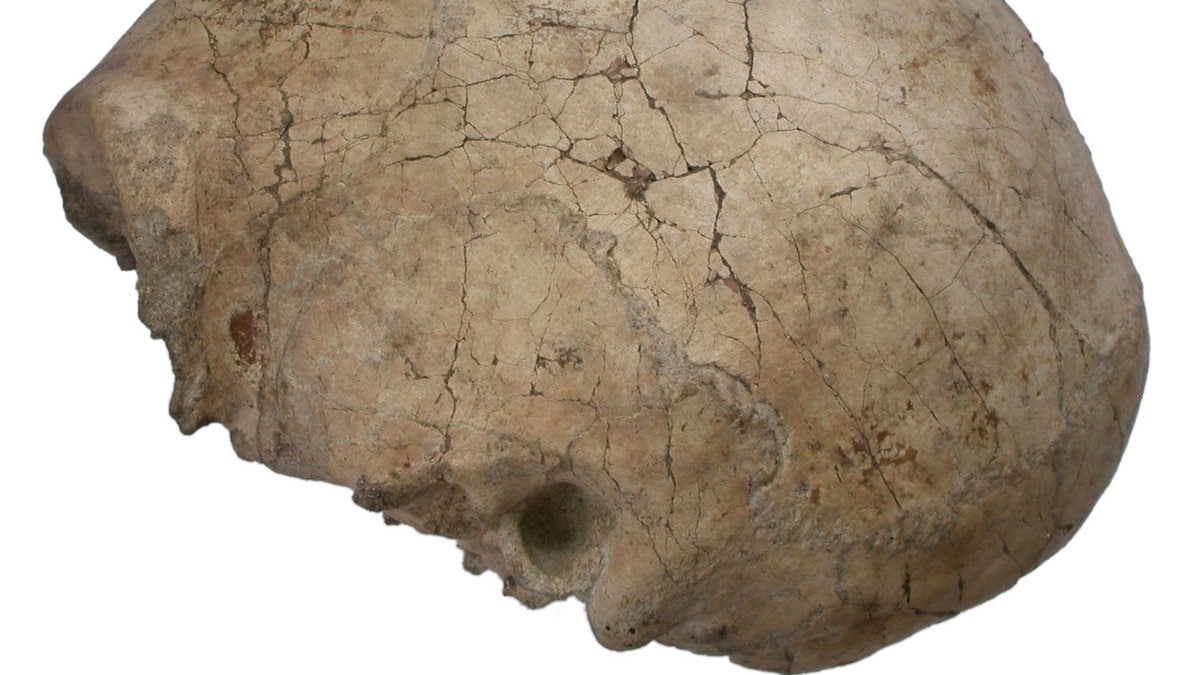Fox News Flash top headlines for Dec. 18
Fox News Flash top headlines for Dec. 18 are here. Check out what's clicking on Foxnews.com
Scientists believe they have resolved a controversy over how long Homo erectus inhabited the Indonesian island of Java before dying out.
New evidence -- which was published Wednesday in the journal Nature -- puts the timing of the species' final years on Java to between 117,000 and 108,000 years ago.
In the new study, as Science News reported, researchers located where H. erectus fossils had been found, and then dug up and dated nonhuman animal fossils from the site.
Their estimates reportedly relied on measures of radioactive uranium decay in bones, and of tooth enamel damage from natural radioactivity in the soil and from cosmic rays.
NASA SPOTS COSMIC 'CANDY CANE' IN MILKY WAY

A Homo erectus skull is seen above. (AP Photo/National Museums of Kenya/F. Spoor)
According to Science News, evidence of humans in Indonesia extends no earlier than 73,000 years ago. H. erectus last existed on Java at least 35,000 years prior to that, study coauthor Russell Ciochon, a paleoanthropologist at the University of Iowa in Iowa City, told the science publication.
“Now we just need to figure out what exactly happened when Homo sapiens first arrived in Southeast Asia,” said paleoanthropologist Mattew Tocheri, who was not affiliated with the study.









































